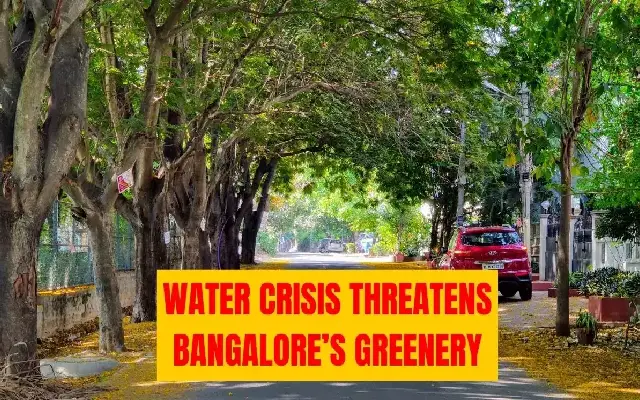Recent studies conducted by the Centre for Ecological Sciences (CES) at the Indian Institute of Science have revealed alarming trends in Bengaluru’s environmental health. The city has suffered a drastic reduction in its green cover by 66%, loss of water bodies by 74%, and an astonishing 584% increase in built-up areas. These findings, coupled with the city’s vulnerability to El Nino’s impacts, paint a bleak future if current trends persist.
Projections by CES indicate a grim scenario by 2038, with forests dwindling to a mere 0.65% of the total land area, and paved surfaces engulfing over 98% of Bengaluru’s urban landscape. Professor T V Ramachandra, leading the energy and wetlands research group at CES, warns of the detrimental effects of these changes, citing the exacerbation of the urban heat island effect. Land surface temperatures have soared from 33.04 degrees Celsius in 1992 to 41.4 degrees Celsius in 2017, particularly during the months of March to May.
Harini Nagendra, a professor of ecology at Azim Premji University, underscores the significance of Bengaluru’s historical ecological wisdom. Early settlers demonstrated a profound understanding of nature’s rhythms, as evidenced by their holistic approach to urban planning. They integrated water bodies with surrounding greenery, such as the ‘gundathopes’ or orchards strategically placed throughout the region. These practices not only provided respite from the semi-arid climate but also fostered community engagement and ecological balance.
Scientific research supports these traditional insights, as demonstrated by studies correlating vegetation cover with temperature regulation. Trees not only mitigate air pollution but also substantially lower ambient temperatures, offering vital relief amidst rising urban heat. However, Bengaluru falls short of the recommended 33% green cover, with only 17 trees per 100 persons, far below the necessary threshold for sustainable urban living.
In light of these findings, urgent measures are imperative to prevent Bengaluru from descending into an uninhabitable environment. Reviving lakes and nurturing green spaces must be prioritized to counteract the adverse impacts of urbanization and ensure the preservation of Bengaluru’s mild climate and ecological heritage.

















